TSSM'S BHIVARABAI SAWANT COLLEGE OF ENGINEERING AND RESEARCH
S No 12-1-2 and 12-2-2 Narhe, Taluka- Haveli, Near Sanas Crane, Pune-Bangalore Highway, Pune, Maharashtra 411041
Approved By AICTE and Affiliated To Savitribai Phule Pune University
Facilitation Center - 6649
ACCREDITED BY NAAC WITH "A" GRADE
Electronics and Telecommunication
The Department of Electronics and Telecommunication Engineering was established in 2010, initially with a sanctioned intake of 60 students. Over the years, the department has grown into a hub of academic excellence, driven by a highly qualified, dynamic, and experienced faculty. The department consistently achieves outstanding academic results and has developed strong research groups in key areas such as Digital Communication, VLSI Design, and Embedded Systems, IoT, AI-ML. Our faculty members contribute extensively to national and international research, with numerous publications in reputable journals and conferences. The department fosters a vibrant academic culture and provides a conducive working environment for teaching, learning, research, and development.
All classrooms are equipped with the latest teaching aids, including Smart Boards, and the department's computer systems are interconnected with Wi-Fi facilities. We actively support both co-curricular and extracurricular activities by organizing a variety of events to enhance student exposure. These include expert lectures, workshops, national-level paper presentations, project competitions, circuit debugging contests, and more. In alignment with the National Education Policy 2020, the department has introduced industry-based student training programs and offers skill development courses through platforms like PMKVY and ACKVK. Our students are actively engaged in both national and international events, showcasing their talents and abilities. To bridge the gap between theoretical knowledge and practical experience, the department organizes industrial visits for all courses. We have established strong connections with various industries through Memoranda of Understanding (MoUs), providing students with valuable internship opportunities to gain hands-on experience in real-world industry settings. Additionally, the department plays an active role in supporting and assisting students in securing placements with renowned industries, ensuring they receive competitive salary packages. Furthermore, students regularly publish their research and articles in magazines and journals, contributing to the academic community.
Vision
To be a preferred destination for education in Electronics and Telecommunication Engineering leading to societal growth.
Mission
M1: To provide conducive environment for achieving quality in engineering education catering socio-economic needs.
M2: To tune with emerging challenges by adapting engineering advances.
Program Educational Objectives (PEO)
- PEO1: Graduate shall have abilities for pursing for professional career.
- PEO2: Gradute shall have an ability to deal with socio-economic aspect through domain expertise.
- PEO3: Graduate shall have an ability to pursue higher education and be a life-longer learner for acquiring emerging trends.
Program Specific Objectives (PSO)
- PSO1: Adapt fundamental concepts and emerging technologies in the field of information and communication engineering to solve societal problems by experiential learning.
- PSO2: Graduates will be able to design, analyze and develop electronic systems in the field of VLSI, Embedded and IoT.
- PSO3: Graduates will be able to acquire, analyze and explore programming skills for providing solution to real life problems.
Program Outcomes (PO)
- PO1. Engineering knowledge: Apply the knowledge of mathematics, science, engineering fundamentals, and an engineering specialization to the solution of complex engineering problems.
- PO2. Problem analysis: Identify, formulate, research literature, and analyze complex engineering problems reaching substantiated conclusions using first principles of mathematics, natural sciences, and engineering sciences.
- PO3. Design/development of solutions: Design solutions for complex engineering problems and design system components or processes that meet the specified needs with appropriate consideration for the public health and safety, and the cultural, societal, and environmental considerations.
- PO4. Conduct investigations of complex problems: Use research-based knowledge and research methods including design of experiments, analysis and interpretation of data, and synthesis of the information to provide valid conclusions.
- PO5. Modern tool usage: Create, select, and apply appropriate techniques, resources, and modern engineering and IT tools including prediction and modeling to complex engineering activities with an understanding of the limitations.
- PO6. The engineer and society: Apply reasoning informed by the contextual knowledge to assess societal, health, safety, legal and cultural issues and the consequent responsibilities relevant to the professional engineering practice.
- PO7. Environment and sustainability: Understand the impact of the professional engineering solutions in societal and environmental contexts, and demonstrate the knowledge of, and need for sustainable development.
- PO8. Ethics: Apply ethical principles and commit to professional ethics and responsibilities and norms of the engineering practice.
- PO9. Individual and team work: Function effectively as an individual, and as a member or leader in diverse teams, and in multidisciplinary settings.
- PO10. Communication: Communicate effectively on complex engineering activities with the engineering community and with society at large, such as, being able to comprehend and write effective reports and design documentation, make effective presentations, and give and receive clear instructions.
- PO11. Project management and finance: Demonstrate knowledge and understanding of the engineering and management principles and apply these to one’s own work, as a member and leader in a team, to manage projects and in multidisciplinary environments.
- PO12. Life-long learning: Recognize the need for, and have the preparation and ability to engage in independent and lifelong learning in the broadest context of technological change.
Prof. Sudhir J. Joshi
Assistant Professor M.Tech. (Digital Electronics), Ph.D.
sjoshi_entc@tssm.edu.in
Vision
Mission
Objective
- To develop the managerial skills among the students.
- To motivate the students to work in team
- To develop leadership qualities in the students.
- To develop the decision making and problem solving skills among the students


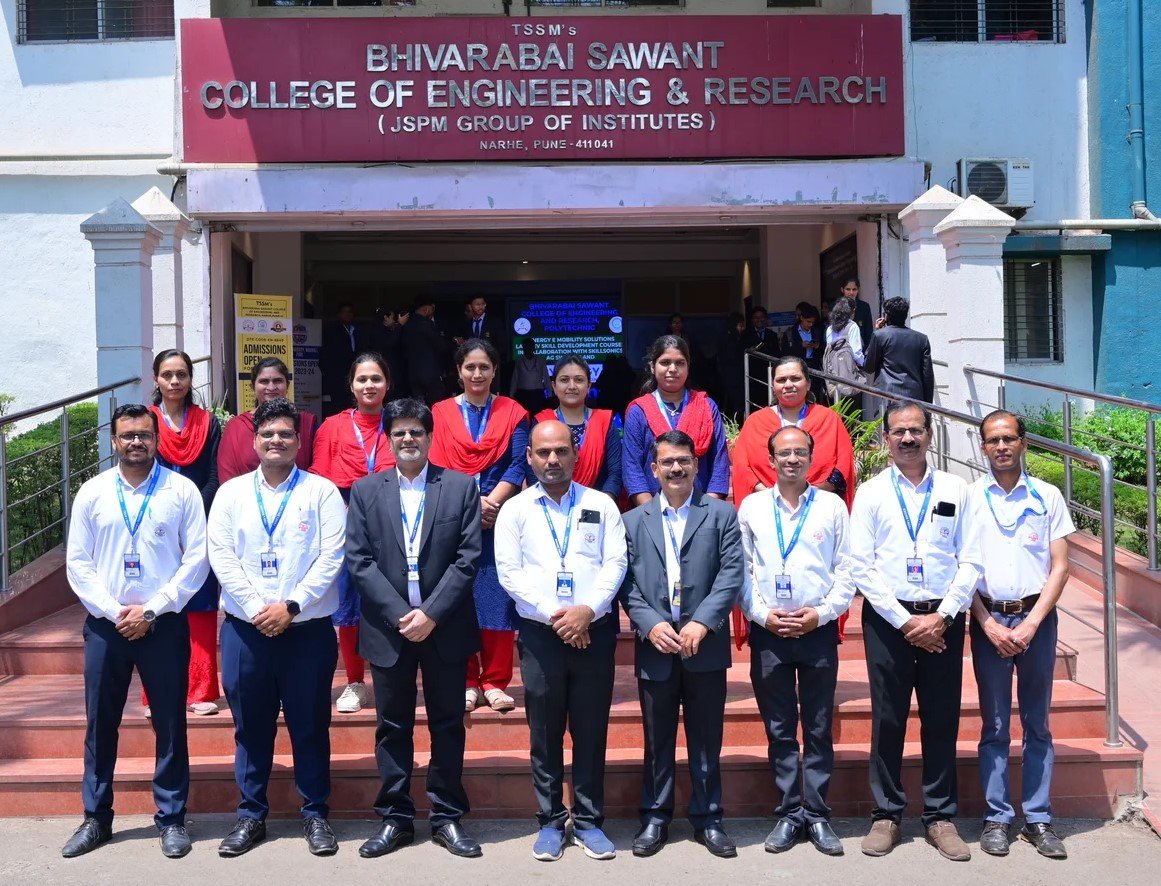
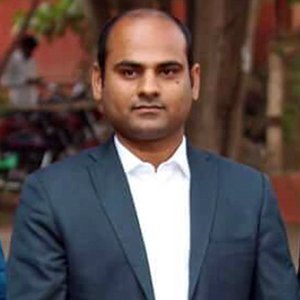
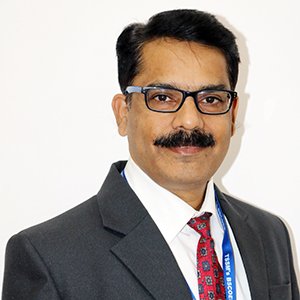
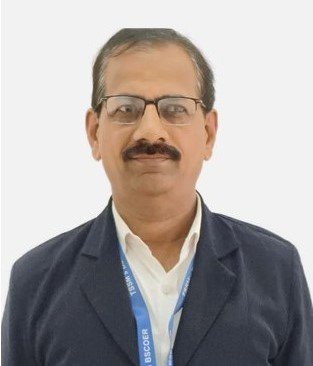
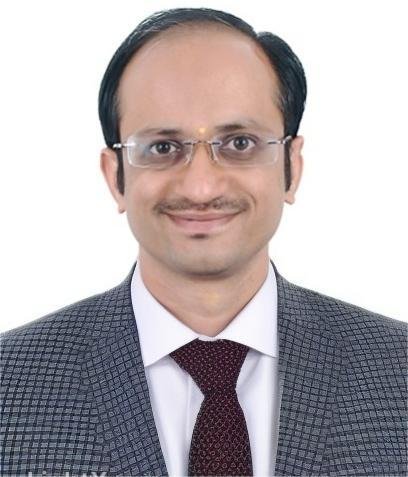
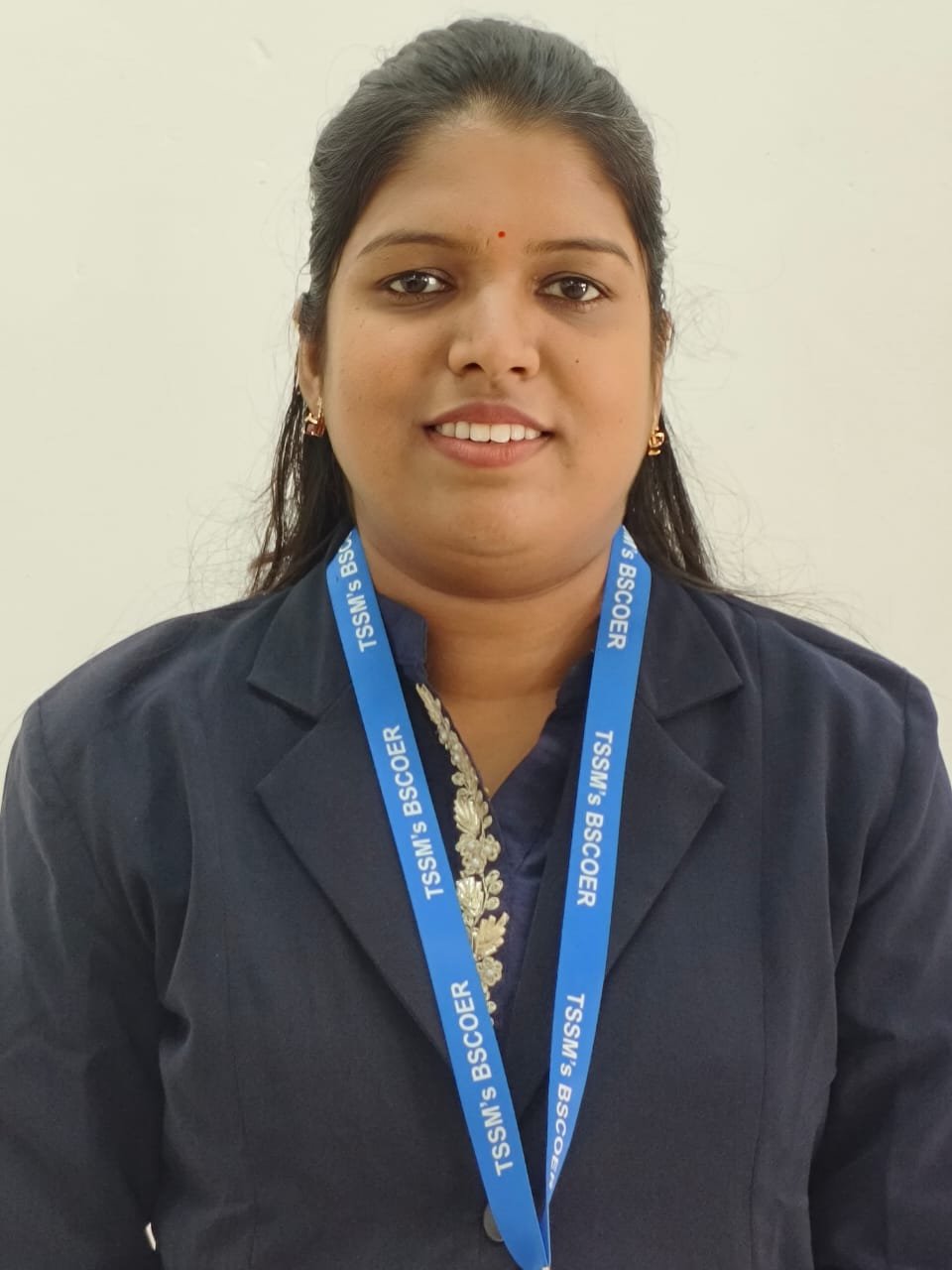
.jpeg)
VLSI LAB
Read MoreCOMMUNICATION LAB 1
Read MoreCOMPUTER LAB
Read MoreCOMMUNICATION LAB 2
Read More